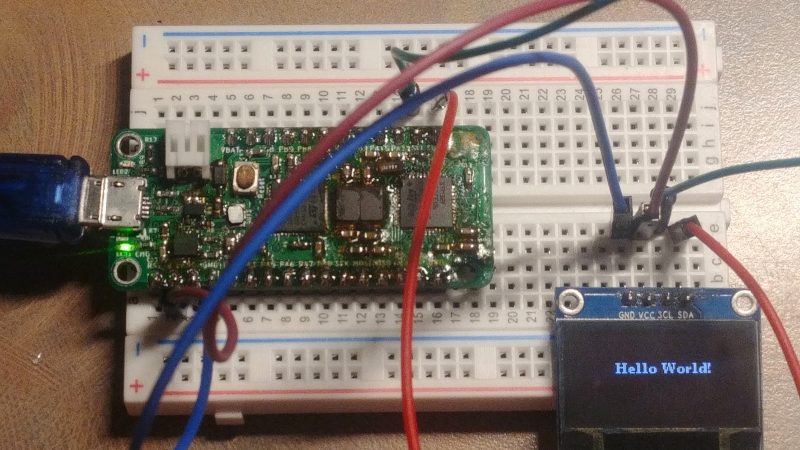[minh7a6] loves the Adafruit Feather, but sees some room for improvement.
First is the matter of 5V tolerance. While just about everything is available in a 3.3v range these days, sometimes it’s just nice not to have to care. The main controller on the Feather is plenty powerful, but its intolerant pins just wouldn’t do so it was swapped for a chip from the ever popular STM32F4 line.
Then he wanted better energy efficiency when running from battery. In order to achieve this he switched from a linear regulator to a buck-boost converter. He also felt that the need for a separate SWD adapter for debugging seemed unnecessary, so he built a Black Magic Probe right in.
He’s just now finishing up the Arduino IDE support for the board, which is pretty cool. There’s no intention to produce this souped up Feather, but all the files are available for anyone interested.



















I like STM32, especially STM32F4 although there was a time they cared nothing for hobbyists… When their only experience of humanity was a toilet seat coming at them down a steel corridor.
Whoa! WTFrack! Toilet seat? Steel corridor? Elucidation, please.
sounds like a misquote from half life. replace toilet seat with crowbar.
The Adafruit Feather STM32F405 Express is out now.
https://www.adafruit.com/product/4382
Thanks for the link!
I agree with the OP that it’s nice to have 5V tolerance, especially for dev boards aimed at rapid prototyping/beginners. Most amateurs probably won’t know about 5V/3.3V buses and it’s best not to have them find out the hard way as they’re likely to either a) never figure it out or b) never return. As for rapid prototyping, the whole reason to use a feather form factor is size constraints. Having to handle the voltage with another board or not being able to use the module that you have on hand isn’t fantastic, so this gives the best of both worlds.
Glad to see Adafruit is offering it, but at $25, I would probably have to think twice before I used it in a project. I’d like to see it at the $15-$18 price point before I just kept them on hand waiting for the right project.
With the Adafruit boards, you’re not just paying for the boards, but also putting some money towards helping them run the community and write polished drivers and tutorials. Vastly different to some of the cheap Chinese manufactured boards with zero documentation or support.
And there is support for CircuitPython for the stm32f4 chips being worked on right now.
The original Pyboard used an STM32F405; there’s already excellent support for those lines of chips in MicroPython
Wash that flux off…
Glad I’m not the only one to get a tic when I saw the picture!
Gave me a shiver
What, the flux?
I stumbled across some “black pills” on banggood about a week or 2 ago coming with F401 and usb-c connectors. Maybe everyone already knows about them but it was new to me to see one with something higher than F0 or F1.
I also like the bigger black boards with F407VET6s on them.
Tons of pins, a battery and crystal for the RTC, an SD card slot, and even some Flash memory on board. I have no idea what they were intended for, but they’re great.
I’ve seen those larger boards but hadn’t ever considered actually buying one because they are priced about the same as genuine nucleo boards from domestic sources. Are they worth it when comparing the two in your opinion?
There’s a new “black pill” board based on the F411CE. Goes by the name WeAct and works with MicroPython
There’s 2 of them. The one with the smd crystal is the F411 and the one with the cylindrical through hole crystal sideways is the F401
That may be the dirtiest new circuit board I have ever seen. A little alcohol and a brush may prevent problems down the road….